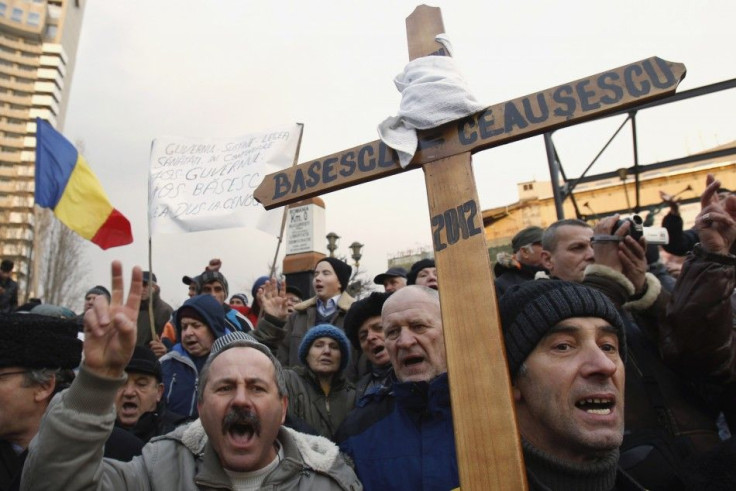Romanian Politics Shaken By Ex-Prime Minister Nastase's Suicide Attempt
ANALYSIS

On Thursday evening, Adrian Nastase, the former prime minister of Romania, tried to kill himself as police entered his home to arrest him.
He put a bullet in his neck and was rushed to the hospital, where an intensive surgery session seems to have saved his life.
Nastase was formerly a leftist politician of the Social Democratic Party. He served as prime minister from 2000 to 2004 and then ran for presidency. He lost that race to current President Traian Basescu.
While he was running, he illegally channeled about $2 million in public funds into his own campaign war chest -- or so ruled a Romanian court judge several years after the fact. Nastase has always proclaimed innocence.
He was indicted in 2006 and convicted in January of this year. On Thursday, the police had come to escort him to a Romanian prison. His sentence: two years in jail.
But Nastase was escorted to a hospital instead.
Recent drama aside, the January conviction was important for Romania's global standing. The country became a member of the EU in 2007, but its poor economic status has worsened in recent years due to the euro zone crisis. Like many struggling nations in the region, Romania is now facing harsh austerity measures and, in response, widespread public protests.
The country today is in dire need of funding, but came under EU scrutiny for failing to prosecute corruption in its chronically inefficient government. The country was in danger of losing hundreds of millions of euros in assistance if it did not clean up its act, so the conviction of Nastase was a step in the right direction.
Nastase was perceived as a haughty and arrogant politician, highly cultured yet prone to rude outbursts. One of his noted accomplishments was the prodigious publication of influential papers during his tenure as an esteemed professor of law. He is also well-known for telling opponents who wanted to tally up his riches that they should instead count his gonads. (This retort was delivered in front of a parliamentary audience and, it should be noted, with the utmost class: he used an allegory about counting chickens and eggs, or ou?le, which has a double meaning in the Romanian language.)
But Nastase was best known for his work in the political sphere, and the record is bleak. His time in office drew parallels to the oppressive Communist regime of Nicolae Ceausescu, who presided over Romania for more than two decades until his overthrow in 1989.
Nastase was a chronically corrupt leader, and this year's conviction against him was somewhat symbolic as it only addressed the relatively minor issue of illegal campaign funding.
Still, the trial was significant in that Nastase is the most senior politician to be convicted in Romania since the trial and execution of Ceausescu himself in 1989. Romania has a long record of tolerating high-level corruption, so Nastase's conviction was a unique turn of events -- a sign that the rule of law may soon be applicable to all people of Romania, no matter what their political status or level of influence.
On the other hand, the charges themselves were likely motivated by old political grudges. Current President Basescu, of the ruling center-right Liberal Democratic Party, is a longtime opponent of Nastase. He is a populist who has vowed to fight corruption -- in 2005, he released classified files on the secret police of Ceausescu's regime -- but critics say he is blind to the corruption that occurs on his own side of the aisle.
That's why Nastase, in response to the charges against him, said the prosecution was politically motivated. He vowed to appeal, even threatening to take the case to the European Court of Rights.
Those self-righteous convictions must have made it difficult to face the police who came to arrest him on Thursday evening. Witnesses told the Associated Press that Nastase asked the officers to wait while he went to retrieve a book; he walked into the next room and picked up a gun instead. He would have shot himself in the head, said one witness, but was obstructed by an officer and hit his neck instead.
Now, reports indicate that Nastase has undergone surgery and is in stable condition at a hospital in Bucharest. His close political ally, current Prime Minister Victor Ponta, went to visit the wounded man after the surgery. His comments show that Romania's political infighting is far from over.
Nastase looks terrible he said to the AP. I wonder if Basescu is happy now?
© Copyright IBTimes 2024. All rights reserved.












